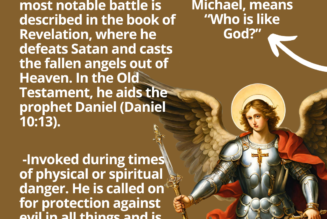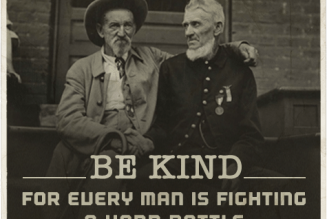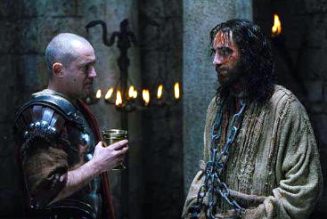, January 21, 2021
This Sunday, the Third Sunday in Ordinary Time, year B, comes just in time. Late January is a low ebb of hope in any year. Add the pandemic and politics and these cold, dark days feel darker and colder than ever.
Then comes this Sunday’s readings about the first days of Jesus’s public ministry.
When all hope was gone, Jesus stepped forward to say “Game over. Victory is ours.”
All was lost. John the Baptist fought the system and the system won. The religious leaders of his time opposed him, and so did Herod — the “King of the Jews” according to Rome. Herod was in power despite his immorality, and John the Baptist was in jail for speaking the truth to him.
An analogy might be if America elected a president who many Catholics claimed to be one of their own even while that president was inimical in his lifestyle or policies to what the Church holds dear.
Maybe we can understand the giant loss of hope John the Baptist’s followers would have felt. They would have felt that the world was against them, and that they couldn’t win.
And at that moment, they would have seen Jesus step forward and announce “This is the time of fulfillment, the kingdom of God is at hand” — telling the world what we hear this Sunday: that God’s victory had arrived.
Then, to give us an even greater shot of hope, Jesus chose the least likely people imaginable to change the world.
“As he passed the Sea of Galilee, he saw Simon and his brother Andrew casting nets into the sea; they were fishermen.” Jesus tells them “Come after me.”
Jesus doesn’t choose the best and brightest; he doesn’t choose those with the greatest tactical skills or the most far-reaching education. Instead, he chooses simple fisherman, minimally educated.
“Fishers and unlettered men are sent to preach,” as Venerable Bede put it, “that the faith of believers might be thought to lie in the power of God, not in eloquence or in learning.”
What these fishermen will achieve will dwarf the accomplishments of Alexander the Great, the Caesars and Napoleon. They will start a revolution of truth that will make modern science possible. They will unleash an appreciation for beauty that will reinvent the arts. They will start an ethical system that changes the way human beings are treated worldwide. How?
Jesus didn’t say, “Come and fish with me.” He said “Come after me and I will make you fishers of men.” Ultimately, God did it — not them.
In Homer’s epic poem The Iliad as the Trojan forces pin the Greeks in next to their ships and the fight looks hopeless, the Greeks take the best armor from the least men and put it on their top fighters, giving the least men the worst protection and favoring the best.
Here Jesus does the opposite: He makes the least ones the stars.
But the apostles were not called to change the world, but just to reach their neighbor.
Jesus didn’t tell the apostles to establish the intellectual and artistic underpinnings of Western Civilization. What he told them to do was to lure a few souls out of the dark waters of sin and into the light of grace.
This took the apostles a long time to understand. They thought their job was to expel the Roman occupiers, bring the tax collectors to heel, or put the Samaritans in their place. No. Their job was to do what they were good at: Their job was to fish.
It is the same with us. We worry about the crushing weight of society’s burdens — politics, the economy, betrayals by religious leaders, violence — but we don’t have to. Our job each week is to fish. Bring a soul or two closer to Jesus Christ. If we do that, God will do the rest.
Jesus also gives us hope by who his “target market” is.
Catholics love reading the stories of the talented intellectuals who have been converted by Christianity. But in the beginning the Lord chose fishermen — ordinary, blue collar people — not intellectuals. That came later with St. Paul. Christianity is something for ordinary, blue collar people even today.
We shouldn’t make the mistake Jonah made. Jonah didn’t want to travel to Nineveh to preach repentance to the city folk. But that was where the people who needed to repent were, and that’s where wild success awaited him.
Successful fishermen go where the fish are, not where they personally prefer to spend an afternoon on the lake; Jesus sends his emissaries to where the people are, not to where his emissaries like to hang out. Later we will learn that Jesus ate with tax collectors and sinners instead of model citizens. Here we learn that he wants to reach the world’s rough and untidy people, not perfect pious types — and that those people will make an impact.
By becoming “fishers of men” the apostles “draw fish, that is, men, from the depths of the sea, that is, of infidelity, to the light of faith,” said St. Remigius, quoted by St. Thomas Aquinas. “Wonderful indeed is this fishing! for fishes when they are caught, soon after die; when men are caught by the word of preaching, they rather are made alive.”
The message Jesus has is really exciting, but it is also really difficult.
Jesus doesn’t just proclaim victory, saying, “This is the time of fulfillment. The kingdom of God is at hand.”
He also says “Repent, and believe in the gospel.” Or, to translate that, he says: “Undergo a metanoia, a radical turn toward God, and be convinced that Jesus is the victorious Lord of all.”
That message — “Repent and believe in the gospel” — is hard. It means doing what Jonah did and confronting people with some serious errors. It also means living in a whole new way, as Paul describes in the Second Reading, the letter to the Corinthians, it means “using the world as not using it fully. For the world in its present form is passing away.”
It means that the only way to embrace the life-changing message of the Gospel you actually have to change your life. But what you get is what Jesus Christ describes: The ultimate happiness of living in the truth and light of God.
Image: Sacred Heart of Jesus Statue in Raven Memorial Park.
Tags: prayer, Sunday Gospel, Sunday Readings, Third Sunday in Ordinary Time Year B
Never miss a post! Subscribe below to our weekly newsletter.
Related
Join Our Telegram Group : Salvation & Prosperity







